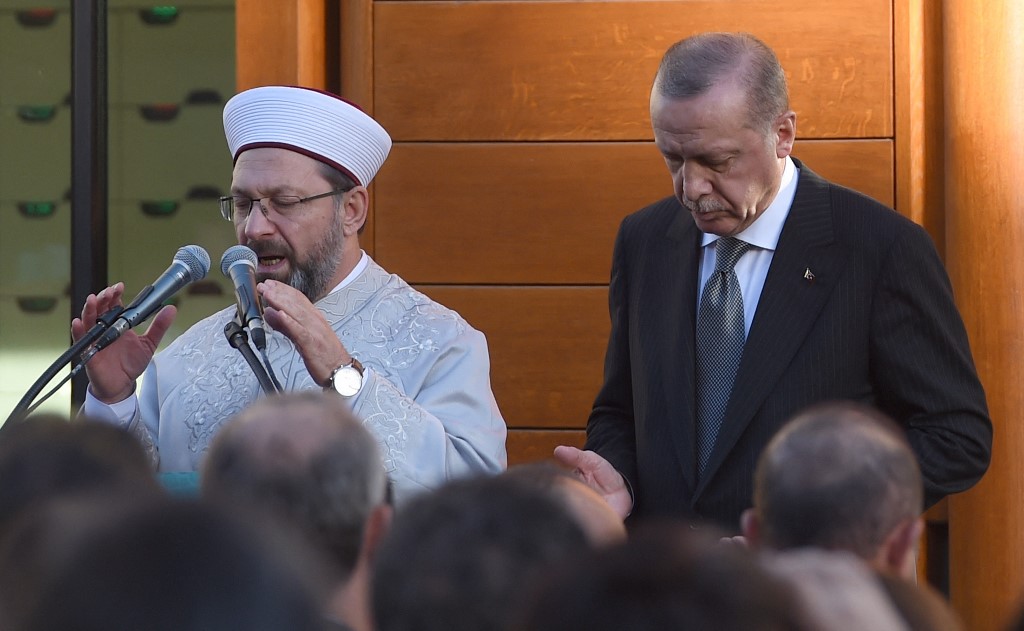The head of Turkey’s religious authority is under the spotlight after he failed to understand a journalist’s question in Modern Standard Arabic, which is widely understood in the Arab world and far removed from the colloquial dialects that might pose a challenge to comprehension, during a high-profile visit to Iraq.
Top imam’s CV, in which he boasts of his knowledge of Arabic and French, his luxurious fleet of cars and his controversial statements on social issues have all come under scrutiny.
During President Recep Tayyip Erdoğan’s recent trip to Iraq, Ali Erbaş, the chairman of the Directorate of Religious Affairs (Diyanet), faced an unexpected test when he asked for a translation of a question put to him in Arabic, a language he speaks well, according to his official biography.
The incident, captured on video by Rudaw TV, took place at the restored Abdulkadir Geylani complex in Baghdad and further fueled online debates about his linguistic skills and the authenticity of his résumé.
This is not the first time Erbaş has been in the news for language issues. Last year, a video emerged showing him struggling to read a French sermon at Strasbourg’s Yunus Emre Mosque, despite claiming to be fluent in French on his CV.
The shortcomings in linguistic abilities that put question marks about his embellished CV are not the only controversies involving Erbaş.
His use of a new Audi A6 as his official car, switching from a domestically produced TOGG to a luxury import, has caused a stir considering there are already six vehicles listed under his office for his personal use.
Erbaş’s previous comments during a sermon on LGBTI+ issues, in which he described them as “a perversion against nature,” have sparked a backlash and debate both in Turkey and internationally.
His appearance on a pulpit with a sword in his hand during a Friday sermon in the Hagia Sophia mosque in 2020 also attracted criticism.
Despite international outrage, Hagia Sophia, which served as a church for 916 years until the conquest of İstanbul, and a mosque from 1453 to 1934 -– nearly half a millennium -– was converted into a mosque from a museum in July 2020 after a Turkish court annulled a 1934 Cabinet decree that had turned it into a museum.
After the conversion, on July 24, 2020, the Friday service was conducted by Erbaş, who gave a sermon holding a sword, symbolizing that the building was conquered by Muslims, referring to the conquest of İstanbul by the Ottomans in 1453.
Erbaş’s position continues to be the focus of criticism as observers question the integrity of his professional qualifications and his suitability for his role, given his poor command of Arabic in view of the religious and cultural importance of the Arabic language in Islamic scholarship, as well as his lavish lifestyle choices and social views.

